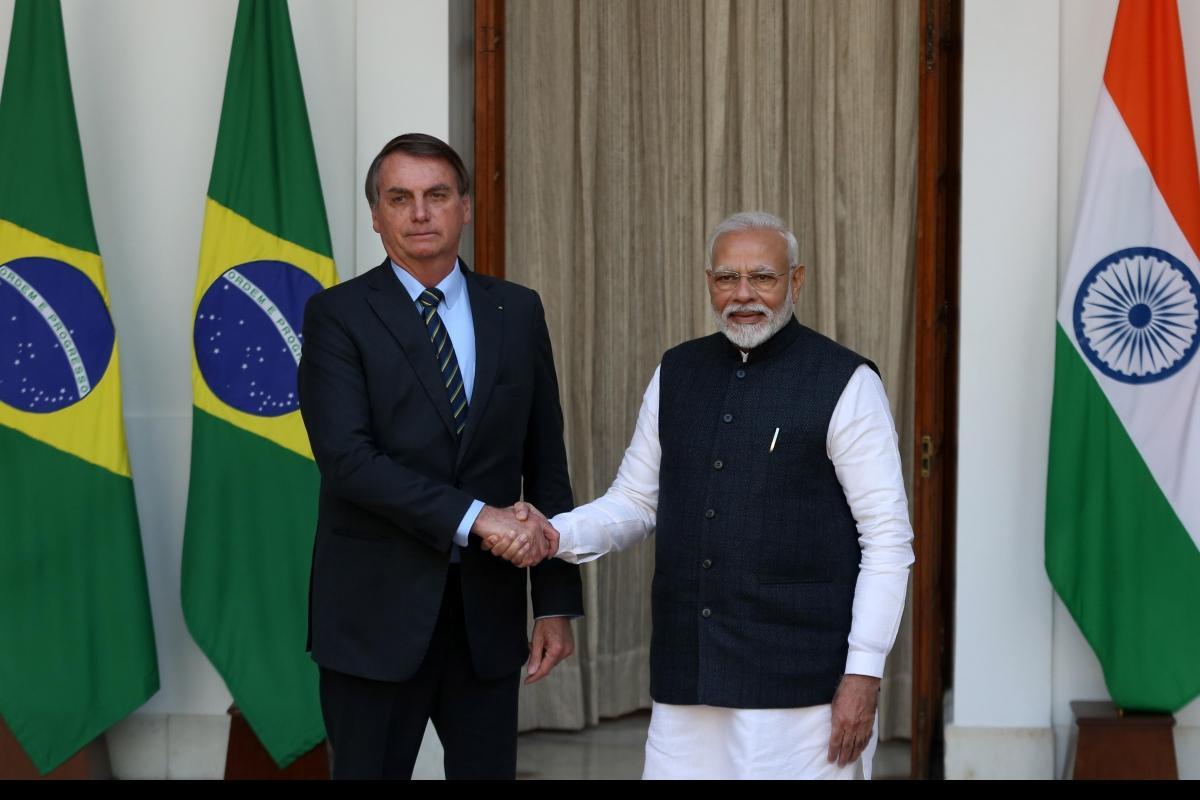RIO DE JANEIRO, BRAZIL – In a change of stance faced with its vulnerability regarding vaccine supply, the Brazilian Ministry of Foreign Affairs (Itamaraty) chose to remain silent during a meeting at the World Trade Organization (WTO) on Thursday, February 4th, which discussed India’s proposal to allow the breach of patents on immunizers.

Brasilia, along with wealthy countries, has spent months blocking a proposal from India and South Africa to suspend vaccine patents and allow the immunizer to be produced in its generic version. Without the patent, vaccines could be produced by laboratories in other parts of the world, thereby expediting access to the products to millions of people and at lower prices.
The deadlock continued at this Thursday’s meeting in Geneva. On the one hand, wealthy countries are refusing to accept a review of the patent monopoly rules. On the other, developing countries insist that only through generic drugs will the world be able to achieve a sufficient production of doses to vaccinate 70% of the planet. Otherwise, some countries might only guarantee their population’s immunity in 2024.
The project began to be negotiated in the second half of 2020. In January, faced with the need to reach an agreement with India to secure the vaccines, the Itamaraty remained silent during a meeting at the World Trade Organization (WTO). The gesture was interpreted as a strategic retreat in order not to endanger negotiations and enable a higher number of doses to reach Brazil in the coming months. Part of AstraZeneca’s production is conducted in India. But it is up to the New Delhi government to authorize exports.
On Thursday, a closed meeting at the WTO in Geneva (Switzerland) once again discussed the issue. And, yet again and emphatically, Brazil chose to forgo its sharp criticism for silence. The shift does not mean that the Itamaraty now supports patent breach. However, with no access to the vaccines, the option was for a convenient diplomatic ambiguity.
Foreign diplomats noted the Brazilian delegation’s silence, stressing how the move had been perceived as an indication that negotiations between Brasilia and New Delhi were weighing down.
On the Brazilian side, the explanation is that the current patent system creates a loophole for compulsory licenses to be issued. Therefore, the Itamaraty considers that using the current system would suffice. However, the Brazilian government does not accept the dismantling of the entire WTO patent agreement, as India is suggesting.
The meeting in Geneva took place at the very moment in which the International Federation of the Red Cross disclosed that only 0.1% of the doses distributed so far were allocated to the 50 poorest countries in the world. The world’s 50 wealthiest countries, on the other hand, have received 70% of all the vaccines administered to date.
Nevertheless, the project to democratize vaccines is being strongly rejected by wealthy countries, which hold the patents. Since the project’s inception, Brazil has been the only developing country to openly declare its opposition to the proposal, abandoning years of international leadership in ensuring access to medicines for the poorest countries.
Brazil’s silence comes at a time when, within Europe, some are alerting to the risks involved in leaving vaccine monopoly in the private sector’s hands. During the WTO meeting, the bloc insisted that patent breach could undermine incentives for companies to invest in innovation and the search for new cures.
The logic is that without a guaranteed return, the private sector would not invest billions in drug and vaccine development projects.
But faced with the crisis with AstraZeneca due to lack of supply, European Council President Charles Michel called for “urgent measures”. Within the bloc, there are rules in place to compel companies to surrender their patents.
The German government warned that to breach patents at this time would not be the solution, because production could not be stepped up overnight. But Berlin made it clear that if cooperation between pharmaceutical companies failed, “coercive measures” could be taken.
Tommaso Valletti, former chief competition economist at the European Commission, also signaled support for the concept of patent breach. “We truly believe this would undermine future innovation, 2.2 million people are dead,” he alerted.
Hoping to reverse Brazil’s international positioning, a campaign led by civil society was launched this week. Letters were delivered to ambassadors of the countries blocking the project’s progress. In the document, the organizations pointed out that the Brazilian government’s stance is “unsustainable and self-destructive”.
The same letter was delivered to the embassies of European countries, Canada and the U.S. Yet, according to the group, the Brazilian embassy in South Africa refused to receive the document.
Doctors Without Borders took part in the initiative, as well as organizations such as the AIDS Foundation of South Africa, Anglican Church of Southern Africa, Cancer Alliance, Eluthandweni Maternity Health Services, Health Justice Initiative, Lameze Abrahams Psychologists, The Desmond Tutu Health Foundation and nurse organizations.
“To date, over 100 countries welcome or support the proposal in some way. Some 400 civil society organizations worldwide and international organizations such as the World Health Organization, UNAIDS, UNITAID and the African Commission on Human Rights have urged governments to support the proposed waiver as a matter of urgency,” they note.
“However, rather than demonstrating global solidarity in the fight against the pandemic by supporting the proposed waiver, a small group of WTO members have so far chosen not to support the initiative,” they said. “Faced with such a crisis, Brazil’s opposition is unsustainable and self-destructive,” they claimed.
Source: UOL

